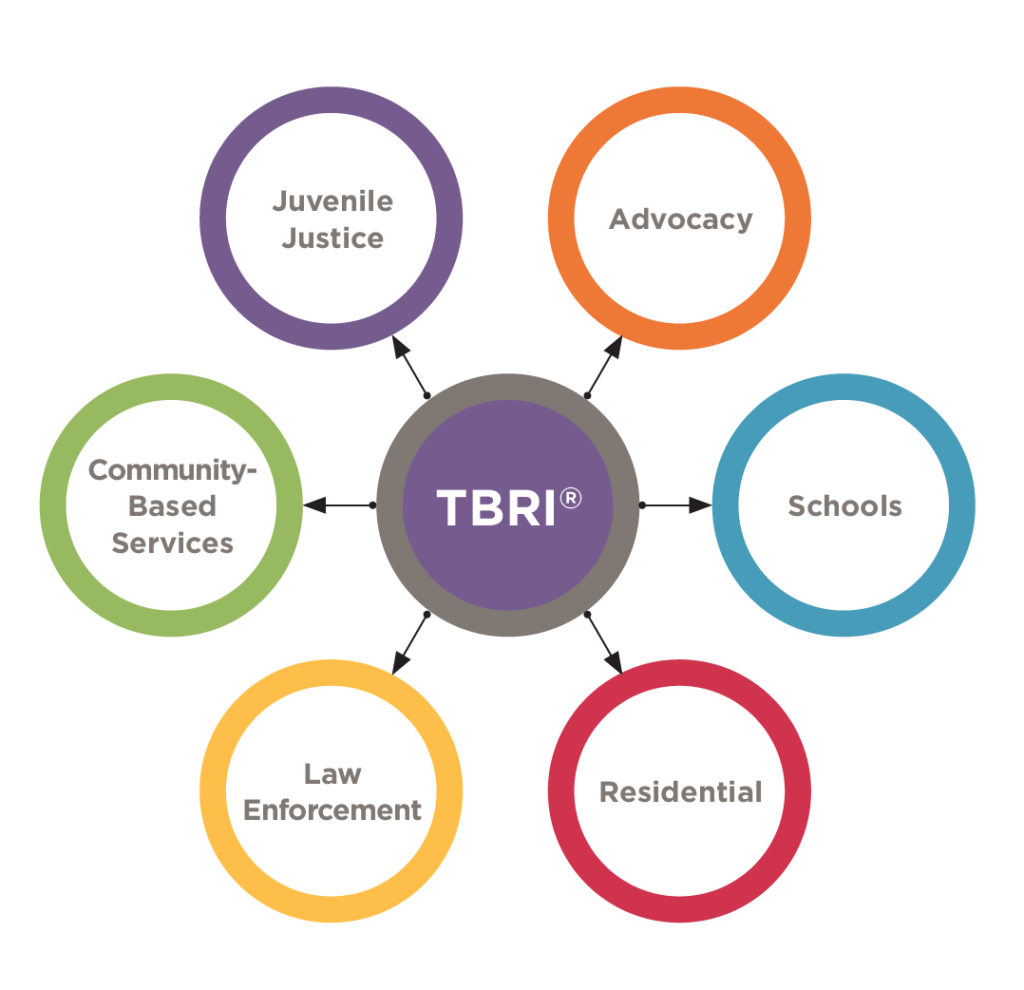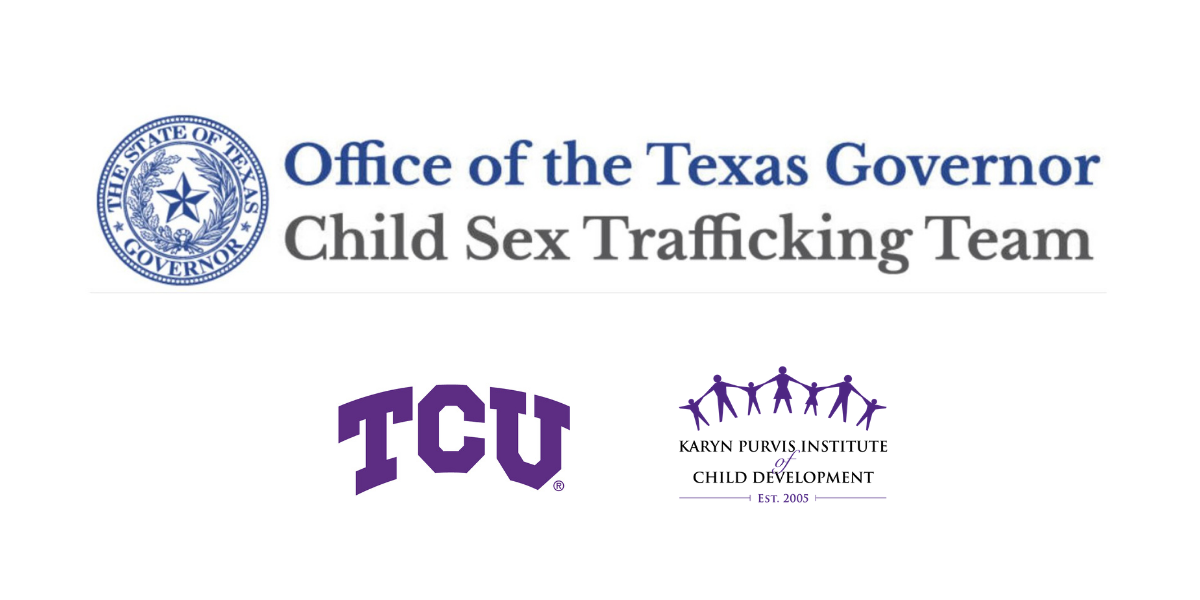Trauma-Informed Care for CSEY
Funded by the Office of the Texas Governor Child Sex Trafficking Team
A Project of TCU’s Karyn Purvis Institute of Child Development
The Karyn Purvis Institute of Child Development, with support from the Office of the Texas Governor’s Child Sex Trafficking Team, has launched a project to provide Trust-based Relational Intervention® (TBRI®) training and consultation to organizations and communities that serve youth who are survivors of trafficking or who are at risk for trafficking. We seek to help these entities understand how complex developmental trauma impacts the physiology of the youth in their care and how TBRI can help promote healing. We provide implementation support to those entities seeking to transform their culture of care.
A downloadable version of the information on this page can be accessed here.
For more information about Human Trafficking, watch this video.
Since Our Partnership Launch in 2018
Over 3,100 individuals have been trained in TBRI to provide trauma-informed care to children and youth who have experienced trafficking and those who are at-risk. KPICD staff have trained over 100 TBRI Practitioners who can train others in TBRI’s trauma-informed strategies. Through this partnership, the Purvis Institute has trained those working in juvenile justice, child welfare (congregate care, foster care) medical, legal, law enforcement, education, mental health, advocacy, and beyond. Over 70 organizations have committed to implementing trauma-informed care utilizing TBRI in their organizations to better serve youth. Finally, over 550 organizations throughout Texas have participated in TBRI training. The project continues to expand throughout the State of Texas.
What We’ve Found
In early 2021, staff in partnering organizations were invited to participate in a survey. Respondents completed the Professional Quality of Life Scale (ProQOL), which measures burnout, secondary traumatic stress, and compassion satisfaction, and the TBRI Use measure which asks respondents to rate how frequently they use different TBRI strategies (never, sometimes, often, or almost always). Preliminary analysis suggests that more frequent use of TBRI strategies (ranging from often to almost always) is associated with low burnout and high compassion satisfaction.
Where We’re Going
 Part of the TBRI Mantra is to see the need and meet the need. We at the KPICD are constantly evaluating our efforts to ensure we are meeting needs of the organizations and communities we serve. Are we making the greatest impact with the resources we have? How are we adjusting to meet the needs of our project partners, while simultaneously balancing the ever-growing demand for TBRI across the state? How can we leverage the knowledge, skills and effort not just of the KPICD, but of the organizations and people we work alongside?
Part of the TBRI Mantra is to see the need and meet the need. We at the KPICD are constantly evaluating our efforts to ensure we are meeting needs of the organizations and communities we serve. Are we making the greatest impact with the resources we have? How are we adjusting to meet the needs of our project partners, while simultaneously balancing the ever-growing demand for TBRI across the state? How can we leverage the knowledge, skills and effort not just of the KPICD, but of the organizations and people we work alongside?
Through input from project partners, we have identified a need for sector-specific resources that will better equip organizations and communities to implement TBRI. In addition to continued training and support, in the coming year we will partner with organizations that have committed to transforming their culture of care. The KPICD will analyze and document how TBRI principles are uniquely operationalized in these organizations to inform the development of sector-specific resources. By equipping other, similar programs with tools and examples, they can learn how to successfully transform their culture of care into one that heals trauma and potentially prevents victimization.
Previous Project Reporting
